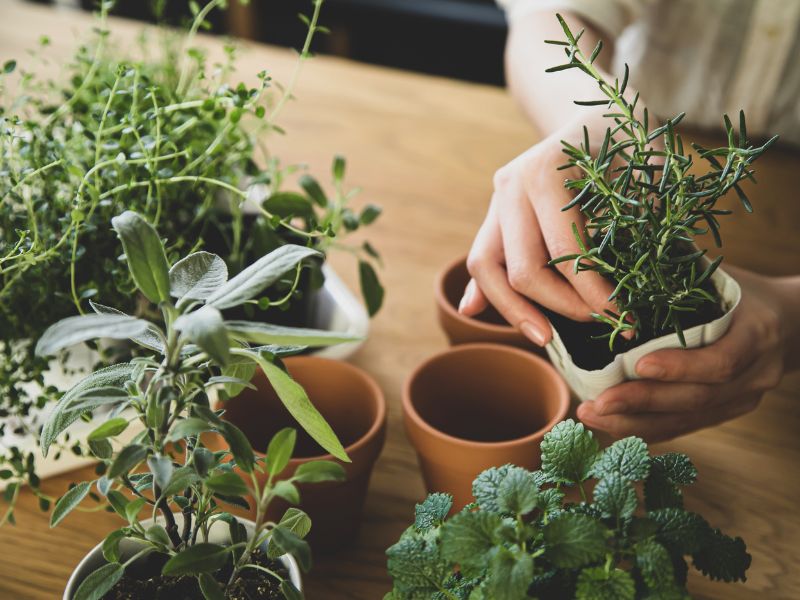
Do you find yourself juggling daily from one activity to another, from one responsibility to another, work, home, family, and other activities?
Doing a lot for others but never seeming to find time for yourself? It’s time to change that. You are just as important as the others around you. Neglecting yourself affects your overall health and well-being. Practicing self-care means doing activities that nurture your mental, emotional, and physical well-being.
Establish healthy boundaries and engage in hobbies that give you pleasure and provoke enthusiasm, relaxing or even therapeutic hobbies. Eating enough nutritious food and getting quality sleep is again an important part of a quality life.
Activities oriented on personal development help in the process of self-growth and help a lot in creating emotional balance and emotional development. Hobbies that are oriented on creativity help you enormously in developing inner peace, regaining inner calm, and helping you fight stress.
This post contains affiliate links, which means I may receive a small commission, at no cost to you, if you make a purchase through a link. Read the full disclosure here.
1. Reading is A Pathway to Infinite Knowledge
Reading is among the best hobbies that a person can incorporate in their life for development. This is a practice that develops your brain, broadens your views and even lets you gain impressions from other people’s lives. From autobiographies of famous personalities and motivational novels to insightful works of fiction, it’s an opportunity to learn and draw inspiration from others.
Begin with picking the books that best fit your criteria. For instance, if you are trying to change the way you think, then Atomic Habits by James Clear or Think and Grow Rich by Napoleon Hill will do wonders for you. As for fiction, read books like To Kill a Mockingbird or 1984 that promote the change of thought. Also, you can visit a public library or try Kindle Unlimited, like Amazon or Audible, and get thousands of books.
All you need is:
- A comfortable reading spot free of distractions.
- A good book or e-reader.
- A notepad to write down points that you think are important.
Put in effort and focus on reading. In the beginning, spend 20 to 30 minutes per day, which should be sufficient. Start with short and more exciting reads so that it pleases and motivates you.
You could also try joining a book club where members share their ideas with you and you with them. A book becomes even more interesting when there are two readers instead of one.
2. Journaling: Reflecting, Expressing, and Growing
Journaling helps in discovering one’s self and in controlling one’s feelings. Mindful journaling helps in clarifying one’s thoughts because it allows for the documentation of emotions and experiences. Self-love and self-awareness are practiced through journaling by recording dreams and solving issues.
You can ask yourself:
- “What am I grateful for today?”
- “What do I hope to gain from interacting today?”
These will help you get started with gratitude and bullet journals which are focused forms of journaling.
A notebook or digital journaling app (e.g., Notion, Day One) and a quiet space to write will be sufficient for this activity.
Simply work towards this goal of envisioning the life you want to live for 5-10 minutes daily. Eventually, with the goal in mind, certain patterns in behavior will be clear, and there can be a shift towards becoming more goal-oriented.
Be honest and open in your writing. There is no need to second guess or filter anything when writing.
3. Train Your Mind with Meditation or Mindfulness
One of the greatest accomplishments you can achieve is learning how to silence your thoughts in a time when everything around you is so distracting. Practicing mindfulness and meditation improves clarity of thought, diminishes stress, and enhances focus. This habit, one of the most crucial for personal development, improves a person’s emotional stability by learning how to create inner peace.
Meditating for 5 minutes daily, and going up to a maximum of 10 minutes in time, will bring enormous improvement in your life and your well-being.
You need:
- A quiet, comfortable space.
- A meditation cushion or chair (optional).
- Noise-canceling headphones for guided meditations.
The amount of effort needed is almost negligible; the greatest obstacle is the mental discipline it takes to remain constant. Try to be consistent at first with 5 – 10 minutes of meditation a day, from there gradually increase to 20 – 30 minutes at a time.
Persistence is the most important thing in meditation. You shouldn’t be worried if you missed one day, start the day after and all is well. Try to pair it with some mindfulness.
4. Creative Pursuits: Unlock Your Imagination
A quick and easy way to express and unlock your imagination could start with a creative hobby such as painting, writing, or photography, among many others. Creativity improves productive thinking and provides a great sense of achievement, and in some cases, even joy. It serves as a reminder that learning does not have to be a tedious task.
Pick a type of medium that captures your attention, such as:
- Try beginner tutorials on YouTube for painting.
- Practice creative journaling and short story writing.
- Try smartphone photography and play around with different editing apps.
Also you should have:
- Basic tools and supplies for your hobby, such as a camera, a paintbrush, and a notebook.
- A workspace that inspires creativity.
You can indulge in creative hobbies whenever you feel like or even as a 1-2 hour weekly getaway. Even the slightest investment of effort can bear significant results.
It is not necessary to seek perfection. Instead, derive joy out of the activity rather than worrying about a specific outcome.
5. Volunteering: A New Way of Making a Difference
Volunteering evokes emotions like compassion and kindness as the individual gives free service willingly. It makes it possible for one to engage in self-development while strengthening relationships, forming perspectives, and aiding others. This method is ideal since it allows the individual to get personal growth during the entire process
List the causes or activities that you are interested in, like wildlife, education, sports, arts, mental health, and politics. After making this list, contact organizations near you or check volunteer groups on the Internet.
If you dedicate at least one or two hours in a week, you will see monumental changes in your community. Once you have decided the causes you wish to aid, you can select the degree of effort you desire.
The effort varies based on the role, ranging from physical activities like cleaning up parks to intellectual tasks like mentoring. Choose roles that align with your skills and interests.
Volunteering enables one to grow emotionally and mentally, as well as allows individuals to expand their perspectives. Remember to take time, and process everything that you are learning from aiding others. Your values will change significantly.
6. Physical Activities: Build Discipline and Resilience
Physical well-being is of paramount importance. Running, hiking, and yoga are certain hobbies that instill discipline, resilience, and mental clarity, whereas these activities provide stress relief and encourage positive habits.
Start with activities you enjoy or are curious about. For instance:
- Start yoga/Pilates to improve flexibility and awareness.
- Go for a hike to enjoy the beauty of nature.
- Use jogging assistive apps like Couch to 5k for beginners.
Is good to have proper fitness attire (running shoes and a yoga mat), plus access to a gym, trails, or any open space.
I would suggest consistency over intensity. Moving forward with 20-30 minutes a day, three to four times a week, would allow you to get accustomed to the goal of exercising. You can, naturally, increase pace and frequency as you desire.
Rather than trying to make unrealistic fitness goals, start small and focus on what you are more comfortable with. Activities that require as little motivation as listening to music can go a long way when done with friends.
7. Gardening or Spending Time in Nature: Cultivate Patience and Peace
Engaging in gardening or hiking are hobbies that have proven to provide mental benefits while allowing one to practice patience, mindfulness, and connection to the world around them. In recent years, the act of growing plants and flowers has gained popularity, as it is very fulfilling and cultivates deep, inner peace.
Focus on simple tasks such as tending to herbs, flowers, and even succulents. Look for plants that can survive in your skill level and climate. For those with no outdoor spaces, indoor plants and grow bags will suffice.
What You Need
- Basic tools such as pots, soil, and seeds.
- Space with adequate sunlight.
Gardening is relatively simple and requires some effort. Gardening is a physically moderate activity that entails some need for both digging and watering. Set aside 15-30 minutes in a day for sustaining and nurturing the plants and flowers.
Explore composting tips and sustainable gardening practices to support the environment.
Hobbies are not limited to a variety of activities; they can also be utilized for self-growth. These include self-love, unique learning experiences, and other positively reinforcing habits. All of these practices level up your life. So, whether you are journaling for inner reflection, running for resilience, or volunteering for change, every little action counts. Rather than scrolling on your phone and wasting time, use that time more productively.
Make sure to enjoy the process of self improvement and remember to always remain consistent. These hobbies are stepping stones to a more fulfilling life. So choose one of them and start working towards a better future.












